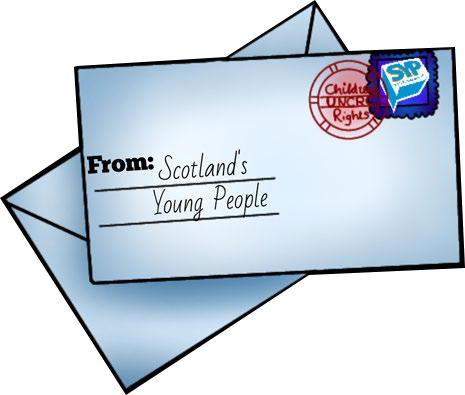Mental health training for educators and health care professionals
Through surveying Scotland’s young people in 2020 we determined a series of recommendations that make up our ‘From Scotland’s Young People’ manifesto. The first recommendation young people supported on Health and Wellbeing is “There should be mandatory training for those working in education and health care settings on how to identify mental health problems and provide support for all young people, especially those most at risk.” Overall 89.4% agreed, 3.2% disagreed, and 7.4% didn’t know.
I don’t really know where I would’ve looked for mental health support. During the pandemic, if I needed help, I wouldn’t know who to ask about it.
– Armed forces young person
I’ve got a guidance teacher, and there’s a ‘Wellbeing’ room in the school. Teachers are in there and they help. A few weeks ago I was in class and it was really noisy and I had an anxiety attack, and […] the teachers helped me calm down.
– A young person whose family is affected by alcohol or drugs.
The right to a Transition Plan
Next on Health and Wellbeing, we asked if “Every child or young person with a disability or long term health condition should have the right to a Transitions Plan to help with their move from child to adult services”. Overall, 88.8% agreed, 2.5% disagreed, and 8.7% didn’t know.
Keeping the NHS free at the point of need
Also on the Health and Wellbeing, we asked if “The NHS should be protected from privatisation, remaining free at the point of use.” Overall 83.6% agreed, 4.2% disagreed, and 12.2% didn’t know.
I think there was a rise in support for the NHS during the pandemic with the clap and everything, but really that […] didn’t do anything to help. My mum works in A&E as a nurse. She went to work every day and despite the clapping she was still mistreated at work.
– Armed forces young person
Tackling drug misuse
Next on the Health and Wellbeing, we asked if “Drug misuse should be treated as a public health issue and should be tackled by:
- “Decriminalising the possession of illegal drugs, such as through the provision of safe injection rooms.” Which was agreed with by 52.3% of young people, disagreed with by 24.8%, and 22.8% didn’t know.
- “Investing more in support services for those affected by drug misuse.” Which was agreed with by 82.8% of young people, disagreed with by 6.4%, and 10.8% didn’t know.”
I don’t think it should be a criminal [offence], because people use it for different reasons. It should be a health thing…Drugs can be a way to escape from real life.
– – A young person whose family is affected by alcohol or drugs
Statistics are not stories: it’s time to listen to young people about their mental health
Erin Campbell MSYP gave a speech to Place2Be Scotland, a children’s mental health charity providing in-school support & training for emotional wellbeing. Erin’s speech focused on listening to young people’s views and the policies required to support young people’s mental health. You can read the speech in full by clicking here, or here’s a snapshot:
“Everything that SYP does is grounded in our policy. Our policy is created, consulted on, debated and voted by young people, so you can rest assured that every piece of SYP policy is representative of Scotland’s young people. Recently, SYP unveiled our new manifesto, From Scotland’s Young People, which will guide our work for the next five years. More than 6,000 young people had their voices heard in our survey and the result is a groundbreaking report detailing the issues facing us today. A piece of policy which has stuck with me is; ‘There should be mandatory training for those working in education and health care settings on how to identify mental health problems and provide support for all young people, especially those most at risk.’ which passed with 89% of young people in favour. Speaking from personal experience, I know that my time at school would have been a lot easier if all my teachers knew how to recognise mental health problems in young people. I often felt unheard and ignored, but often it was because my teachers simply didn’t have the knowledge and training they needed to support me.
Our policy log is filled with policy just like this, everything from limiting the promotion of weight loss apps to Implementing the Scottish Government’s Social Isolation and Loneliness Strategy are all ideas that have been approved by young people themselves. Our policy log is proof that young people in Scotland are not getting the support that they need to achieve their full potential and thrive in their communities.
When we talk about mental health, we often hear the same statistics over and over again. We all know that 1 in 4 people will experience a mental health problem in their lifetime, but statistics are not stories. They do not represent the lived experiences of young people.“



















